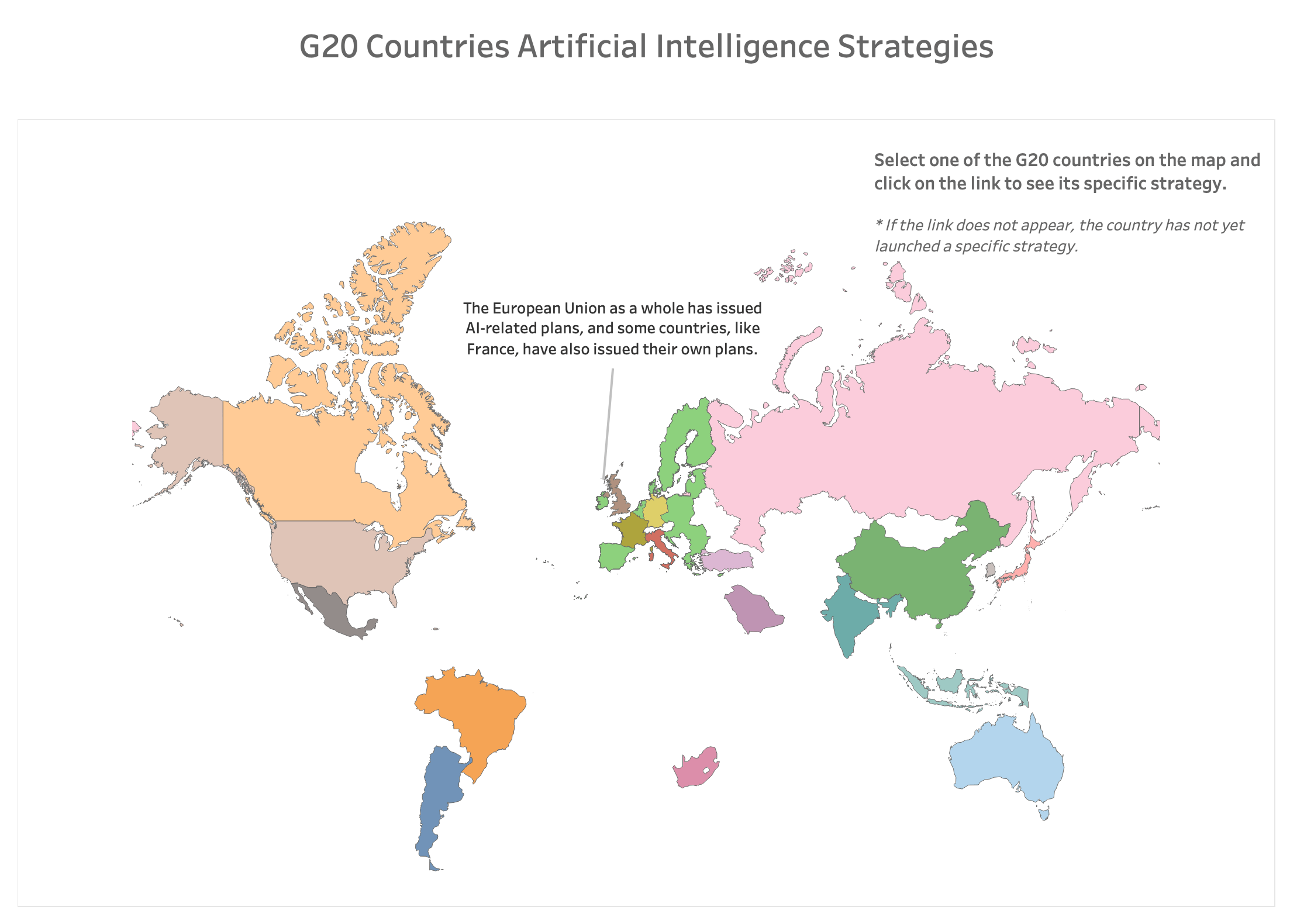G20 AI Strategies
Many nations have started to publish national AI strategies. Since Canada released its strategy in 2017, 11 other G20 members have followed suit, but each nation has approached its AI strategy differently. The Digital Trade and Data Governance Hub has examined these strategies and produced two documents. The first provides an overview summarizing the main goals of each national AI strategy, and the second provides an analysis of how each strategy deals with data governance with respect to AI. Our analysis shows that there is no one formula to achieve a national AI strategy. Thus, strategies range in focus and cover aspects such as funding, research, infrastructure, ethics, jobs, standards, and data governance. These documents are current as of August 2019 and will be updated every 6 months.
Download Report
Download Report
Below are the G20 countries with each country’s AI strategy.
A more in-depth look at G20 and their data governance strategies can be found in our G20 data governance overview.
The Global Data Governance Mapping Project
Continents
Regions
Countries plus the EU
Background and Project Rationale
Tim Berners-Lee, the architect of the World Wide Web, taught us that the Internet is a function of the choices we make about data. He argued that policies to govern the data that underpin the internet must be coherent, interoperable, accountable, and built on trust. Although data is the most collected, analyzed, shared, and traded good or service around the world, we know little about how various types of data are governed at the national and international level. In this project, with help from a small team of researchers, we will map and assess laws and regulations focused on the governance of data. By so doing, we can gain a better understanding of innovative approaches to data governance and what comprehensive data governance looks like.

